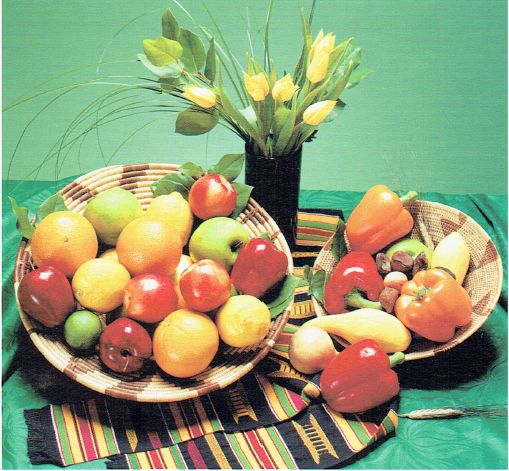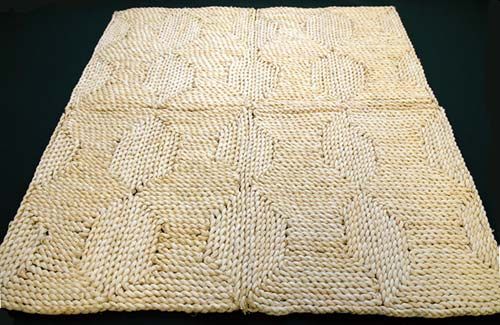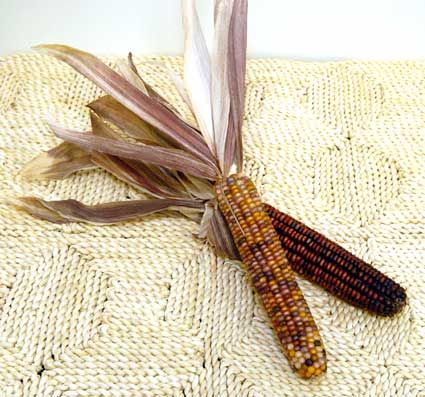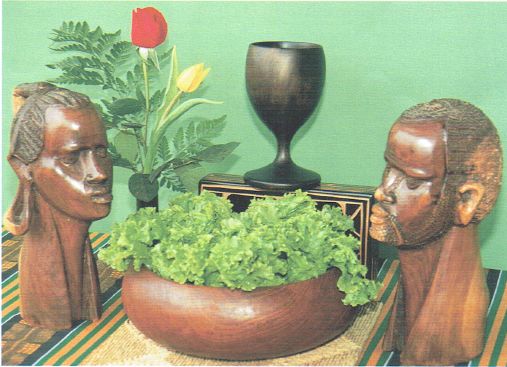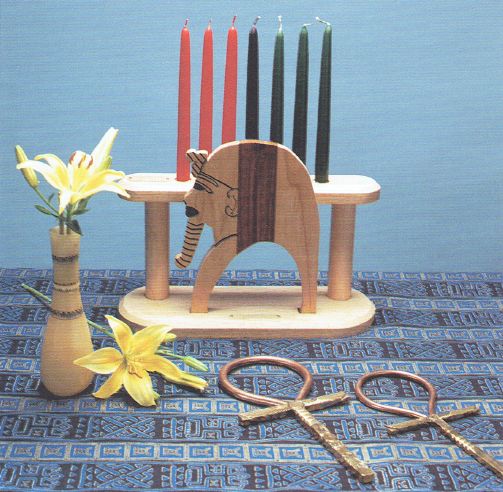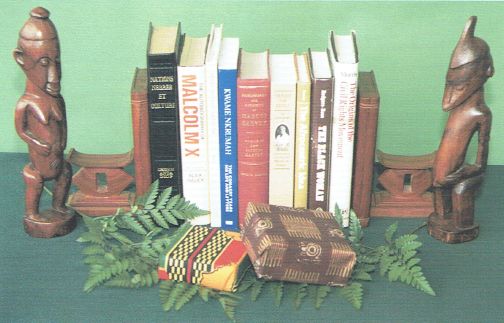The Symbols of Kwanzaa
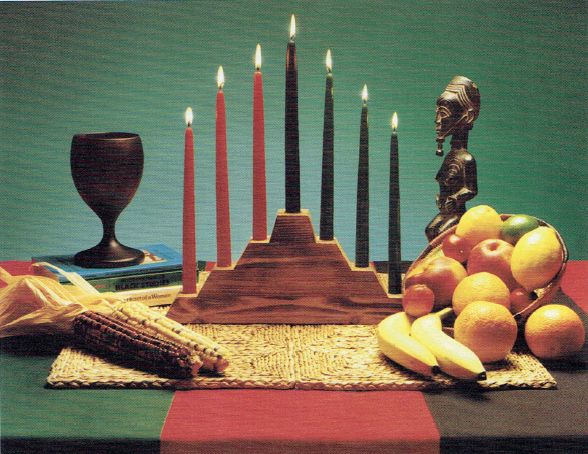
Introduction
Kwanzaa has seven basic symbols and two supplemental ones. Each represents values and concepts reflective of African culture and contributive to community building and reinforcement. The basic symbols of Swahili and the in English are:
Bendera (The Flag)
The colors of the Kwanzaa flag are colors of the Organization Us, black, red and green - black for the people, red for their struggle, and green for the future that comes from their struggle.
The Bendera is based on the national flag given to us by the Hon. Marcus Garvey, with slight adjustments in order and interpretation of the
colors made in the 1960s along with many African countries.
We put Black because, in fact, the people come first, then Red for the struggle which is waged on by and for the people,
and finally, Green, which is for the people's future which comes out of their struggle. The stress and focus here then
is on the people. They are the priority and thus are placed first.

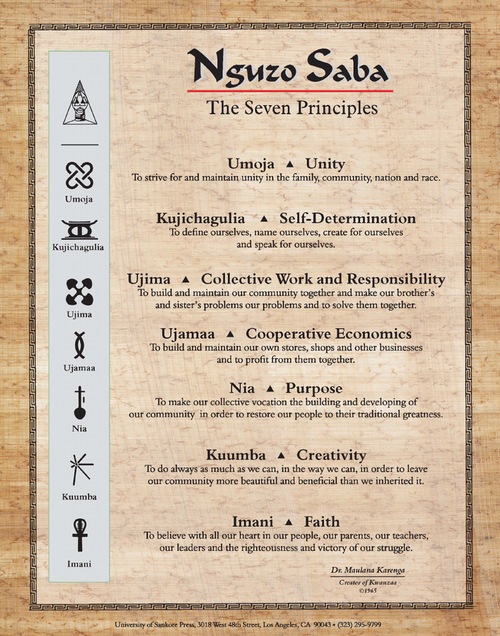
Nguzo Saba Poster
The Nguzo Saba poster or some form of the written Nguzo Saba should always be a part of the Kwanzaa set. For it is these Seven Principles which give Kwanzaa its core and seven days of cultural focus.
Primary Symbols of Kwanzaa
Mazao (The Crops)
These are symbolic of African harvest celebrations and of the rewards of productive and collective labor.
Mkeka (The Mat)
This is symbolic of our tradition and history and therefore, the foundation on which we build.
Kinara (The Candle Holder)
This is symbolic of our roots, our parent people -- continental Africans.
Muhindi (The Corn)
This is symbolic of our children and our future which they embody.
Kikombe cha Umoja (The Unity Cup)
This is symbolic of the foundational principle and practice of unity which makes all else possible.
Mishumaa Saba (The Seven Candles)
These are symbolic of the Nguzo Saba, the Seven Principles, the matrix and minimum set of values which African people are urged to live by in order to rescue and reconstruct their lives in their own image and according to their own needs.
Zawadi (The Gifts)
These are symbolic of the labor and love of parents and the commitments made and kept by the children.
